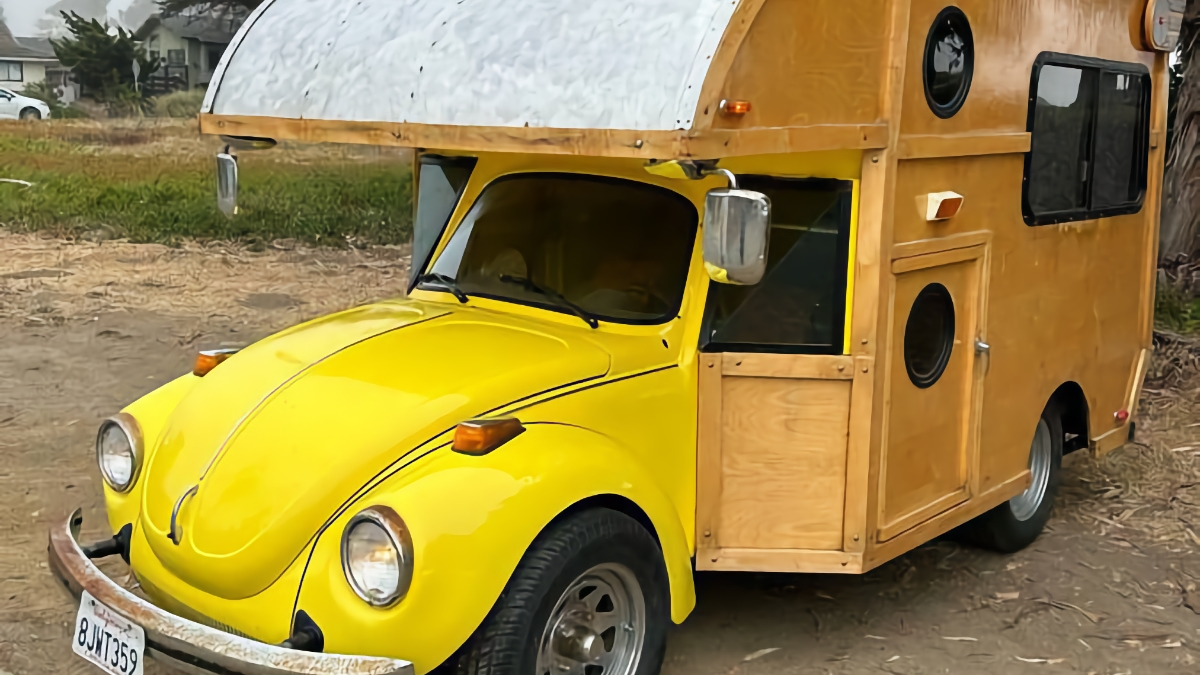At $17,500, Is This 1974 VW 'Super Bugger' A Campy Bargain?
With its Subaru engine, this VW camper can probably actually get out of its own way.
Few people would consider VW's original Beetle as a suitable base for a home-away-from-home, but that's just what today's Nice Price or No Dice Super Bugger is. Let's see if its price is just as audacious.
When given to a roadster, the name Spider (or Spyder, in the case of yesterday's 2003 Maserati Spyder GT) recalls a form of four-wheel Phaeton carriage that became popular in the late 18th and early 19th century. Those horse-drawn carriages earned the name due to the fact that their tall wheels and typically short wheelbase made them resemble our friendly web-spinning arachnids. Few of you were too friendly toward our Maserati Spyder, however. And that was despite its being equipped with the rarely-optioned six-speed manual. A $29,250 price was deemed too much for even that to sway opinions, though, as it ended up with a 63 percent No Dice loss.
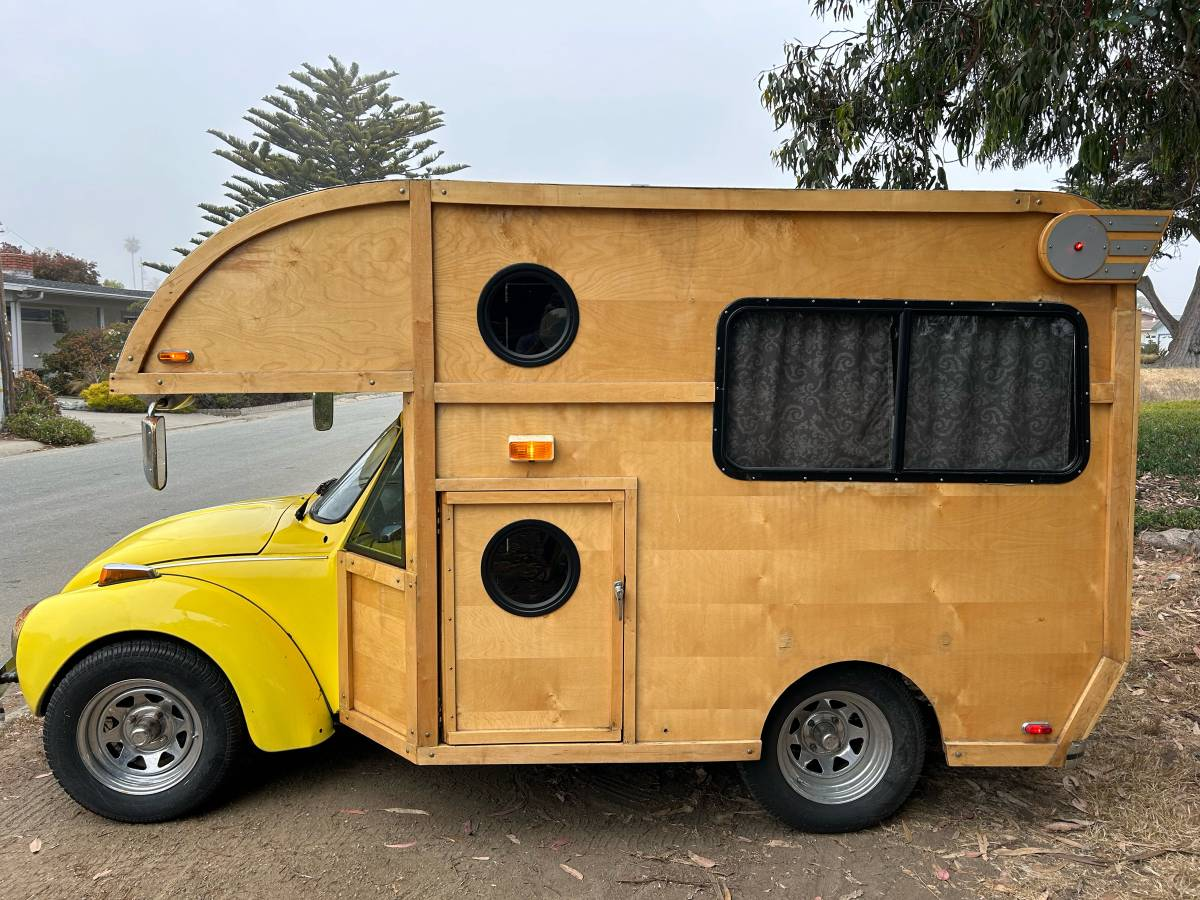
Campers—the machines, not the people—are rarely if ever, described as cute. A singular exception could be this 1974 Volkswagen "Super Bugger" home-built camper because it's... well, cute as a bug.
The Super Bugger was offered in the 1970s by a company called, quite naturally, Super out of Costa Mesa, California. It offered both turn-key campers and DIY kits. This one leans more heavily toward the latter and is all the more unique as it has wood siding rather than the more traditional fiberglass or aluminum. It also lacks some of the amenities of the official Little Bugger design, as there is no slide-out stove/sink unit, closable storage, or an icebox.
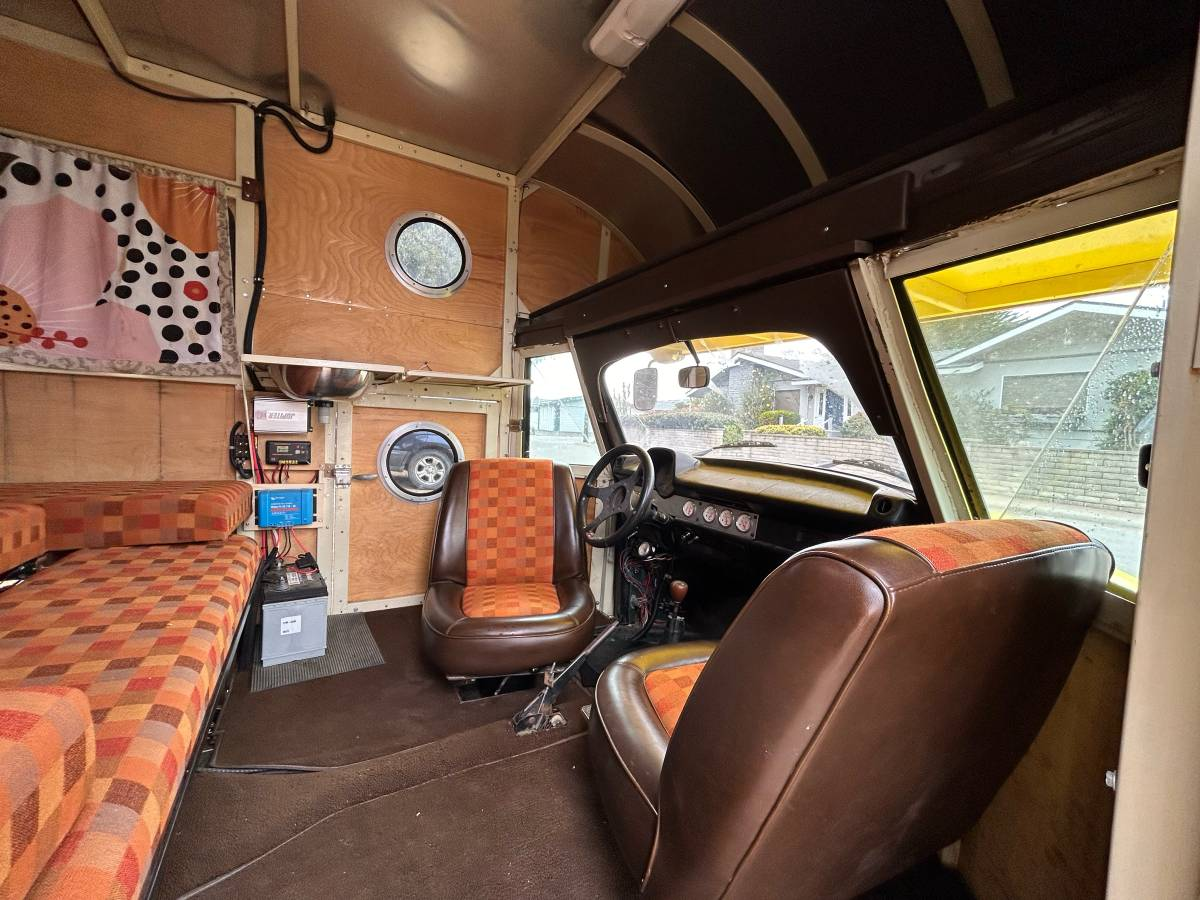
In its favor are a Subaru engine, solar roof, and a pair of Thor's helmet winglets on the aft part of the camper body. Those seem worth the price of admission alone.
The seller doesn't note exactly which Subaru pancake has been flipped into the camper but boasts that it has a professional wiring harness, starts right up, and doesn't leak. It also benefits from the camper conversion having a Kim Kardashian-esque booty, which means there's plenty of room for a rear-mounted radiator, keeping everything nice and tidy.
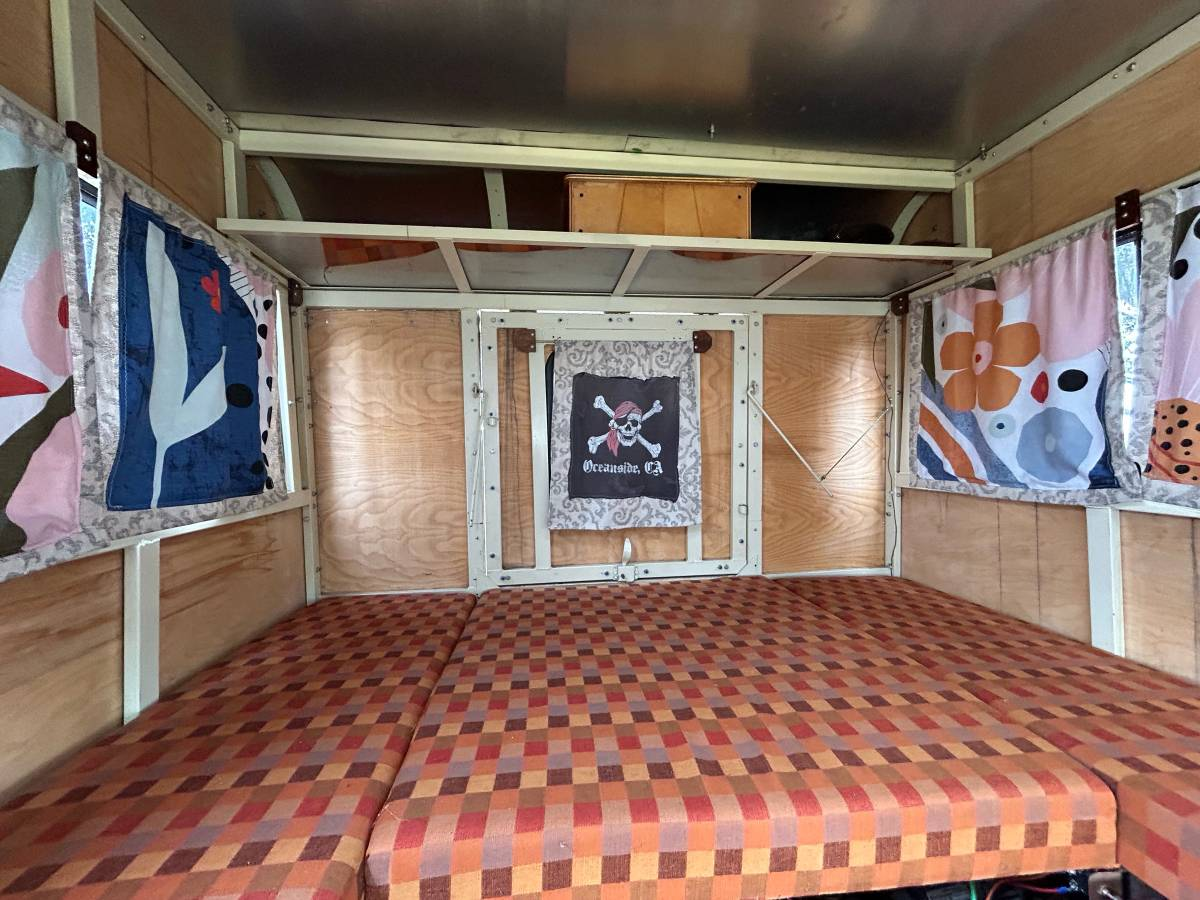
Other mechanical changes include sway bars in front and rear, along with air shocks in the back to account for the wooden body's added weight. It appears that the four-speed manual is still the transmission of choice.
The bodywork looks home-built but not ratty. There does seem to be a lack of weather sealing on the doors and rear hatch, so it's questionable how rain-worthy the camper is, but other than that and some rust on the front bumper, there's not much that seems wrong with it. It also can sleep three in the cabin—two in the back and one precariously perched in the overhead above the seats.
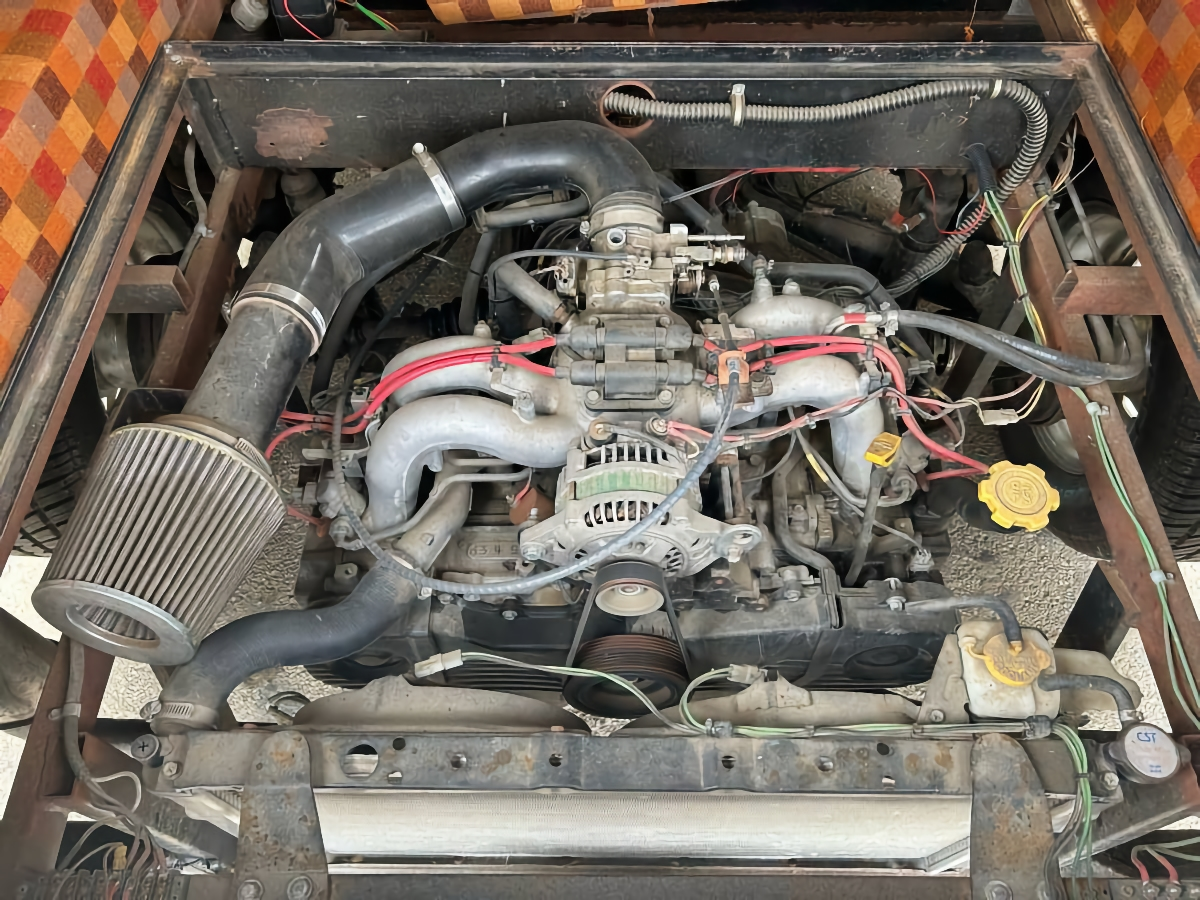
Those seats, by the way, swivel so they can be used for dining or conversation when at the campsite. As appropriate for any older camper, the upholstery and curtains are suitably garish. According to the ad, it has 76,000 miles on the clock—although it's also noted that the odometer is broken—and comes with a clean title. On the downside, it does not have its original blue and gold California plates. The asking price for this Super Bugger is $17,500. That's on the low end for a real-deal Super Bugger, but this being "Super Bugger-adjacent" means that accommodations are likely being made by the seller.
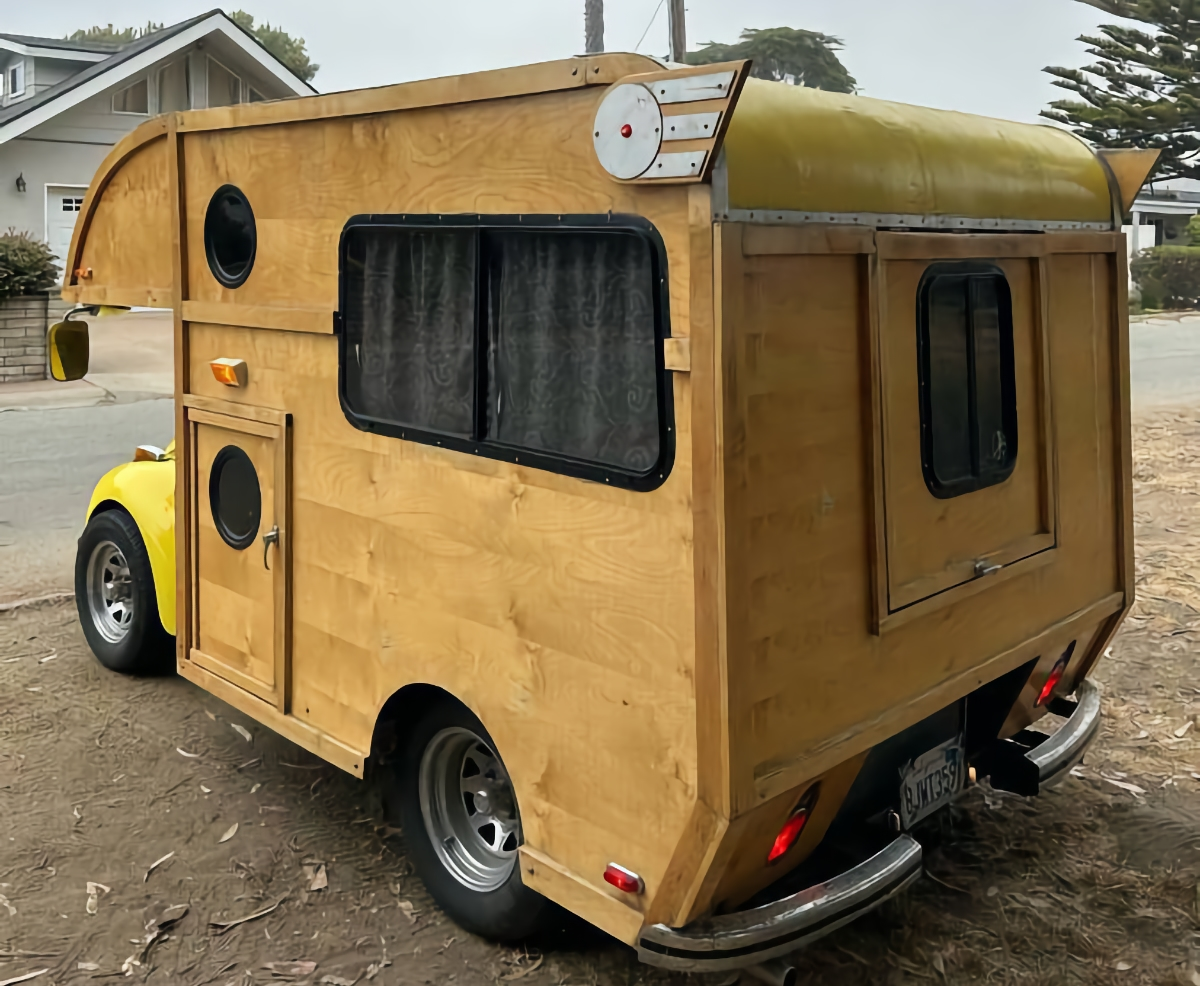
The question for you is whether or not anyone should accommodate that $17,500 asking. What do you say? Is that a fair price for this cute 'lil Bugger? Or is that too much to ask of a home built that looks like it was built out of part of somebody's house?
You decide!
San Luis Obispo, California, Craigslist, or go here if the ad disappears.
H/T to Mark Durrant for the hookup!
Help me out with NPOND. Hit me up at remslie@kinja.com and send me a fixed-price tip. Remember to include your Kinja handle.
